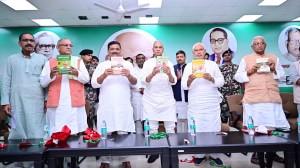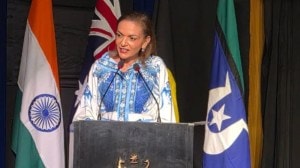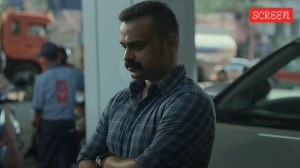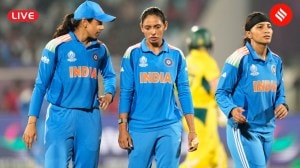After suicide bombs, these volunteers pick up the pieces
The words ‘‘terrorist attack’’ on his pager are enough to send Shlomo Brom scrambling for his rubber gloves, tweezers an...

The words ‘‘terrorist attack’’ on his pager are enough to send Shlomo Brom scrambling for his rubber gloves, tweezers and a spatula before rushing off to join the rescue effort at the scene of yet another suicide bombing.
Brom is one of 604 ultra-Orthodox Jewish men who volunteer their time to painstakingly collect every piece of human flesh and mop up every last drop of blood after Palestinian suicide bombings.
Brom’s pager has rung incessantly since Palestinian militants escalated their suicide bombing campaign after the outbreak of an uprising for independence two years ago.
Dressed in their trademark yellow vests, the volunteers of the Israeli group known as Zaka have become a fixture at the scenes of suicide bombings.
Armed with tweezers, they climb ladders to collect scraps of flesh from street lamps or trees or scrape fragments of internal organs and congealed blood off the ground.
A Hebrew acronym for Identification of Disaster Victims, Zaka is comprised of ultra-religious men committed to ensuring that as much of the human body of every victim is buried in accordance with Jewish law. ‘‘I can’t take the main part of a person’s body and leave the rest there as if it is wreckage. It’s part of a human being,’’ said Brom from the Zaka burial society’s Jerusalem office. ‘‘The Bible says man is created in the image of God.’’
The bodies of the victims are often intermingled with the remains of the Palestinian bomber who blew up in their midst. But in death everyone is treated with the same reverence by the Zaka volunteers — victim and bomber.
‘‘You have to pick up a baby’s head and the pacifier is still in its mouth…And then two minutes later you have to clean up the body of the terrorist, the one who came and saw the baby and blew himself up,’’ said Brom with a shudder.
‘‘But the Bible wants us to treat them equally so we must also respect the terrorist’s body which is very difficult. It’s not up to us to judge. It’s up to God.’’
Not only do Brom and his fellow Zaka volunteers collect and label each piece of human remains at the scene of the attack but they later reassemble them to ensure that as much of each victim’s body is handed over to the family for burial. The grisly task often involves poring through bags of human remains in search of missing limbs or fingers and large chunks of unidentifiable flesh.It is one of the most gruesome jobs in the world. Brom has seen it all.
But his most harrowing experience to date was attending the scene of a suicide bombing in an ultra-Orthodox neighbourhood of Jerusalem in March in which nine people, including five children, were killed by a Palestinian suicide bomber.
The bodies were so mutilated that DNA tests had to be done to identify them. But his most horrific memory was collecting the mutilated remains of a baby girl from her pram.
Brom is the only unmarried Zaka volunteer all of whom come from the close-knit ultra-Orthodox world. Usually married men are recruited as they are believed to be more emotionally mature to deal with the trauma.
The side-by-side cooperation between the ultra-religious Zaka volunteers and secular medics, police and other officials is rare in Israel where tension between secular Jews and tight-knit Orthodox Jews is the norm.
Not surprisingly, 80 percent of volunteers drop out of Zaka before they can complete the course, in which they learn forensic techniques for collecting body parts, first aid and undergo psychological training.
Zaka, which in 2001 was voted the United Nations volunteer organisation of the year, also attends the scenes of car accidents, suicides and murders and almost every other kind of unnatural death. After attending the scene of a suicide bombing, the volunteers assemble for a debriefing to share their experiences so they will not take their trauma home to their families.



- 01
- 02
- 03
- 04
- 05




























